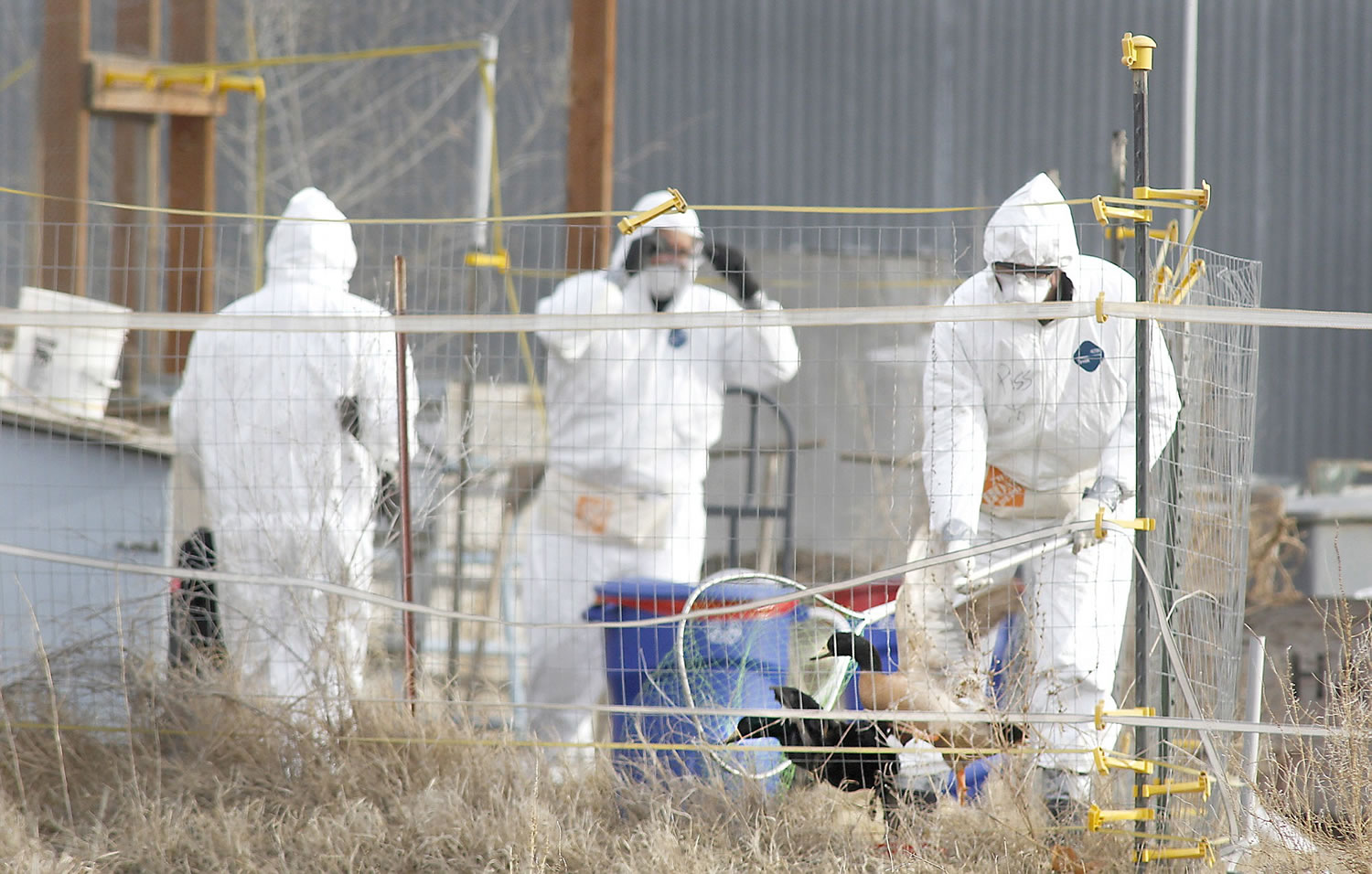SPOKANE — Backyard poultry producers in Washington are being told by state officials to monitor their flocks after a deadly avian flu outbreak in the Tri-Cities area.
About 700 chickens, turkeys, ducks and guinea fowl in two backyard flocks were affected by the outbreak earlier this month.
The Spokesman-Review reported Wednesday that some of the birds died from the fast-acting H5N2 avian influenza, which poses little risk to people. The remaining birds were destroyed to prevent the disease’s spread.
Contact with the feces of infected wild ducks is believed to have caused the outbreak.
“These avian influenzas are often lethal,” said Dorothy MacEachern, the Spokane Regional Health District’s epidemiologist. “They can easily be transmitted, particularly in free-ranging backyard flocks that aren’t protected from contact with wild birds.”
Scientists are trying to determine whether the Tri-Cities outbreak was caused by the same H5N2 virus responsible for a December outbreak in southwest British Columbia that led to nearly 250,000 chickens and turkeys being destroyed.
“Although it’s the same strain, we won’t know if it’s the same virus without genetic testing,” said Hector Castro, a spokesman for the Washington Department of Agriculture.
Last week, federal researchers worked with hunters at the McNary National Wildlife Refuge east of the Tri-Cities to test ducks and geese for avian flu. Samples were taken from about 100 birds shot by hunters at the 15,000-acre refuge on the confluence of the Columbia and Snake rivers.
Earlier testing of wild birds had focused on Western Washington, after a northern pintail duck in Whatcom County tested positive for H5N2 avian influenza in December. The H5N2 strain contains gene segments both from a deadly Eurasian avian flu and from avian flu more typically found in North America.
The detection in the pintail duck was the first time the H5N2 strain had been discovered in Washington, and the Tri-Cities outbreak was the first detection in the state’s domestic poultry, Castro said.
The state Department of Agriculture has ordered a quarantine of at least 240 days for a 20-mile zone around the Tri-Cities properties with the infected flocks. The quarantine prohibits the movement of eggs, poultry and other poultry products outside the zone.
A joint team of state and federal technicians worked to disinfect the two properties last week. Castro said that generally involves deep-cleaning equipment, but it can also require taking down outbuildings.
The Canadian government last week banned imports of birds, raw poultry and poultry products from Washington and Oregon. China has also banned all U.S. poultry, eggs and poultry products.
Officials said there is no immediate public health threat. Avian flu does not affect meat or eggs, which are safe to eat.
But concerns remain about wild birds spreading the virus. Given the popularity of backyard chickens, the recent outbreak is something that small producers and hobby farmers should be aware of, Castro said.



